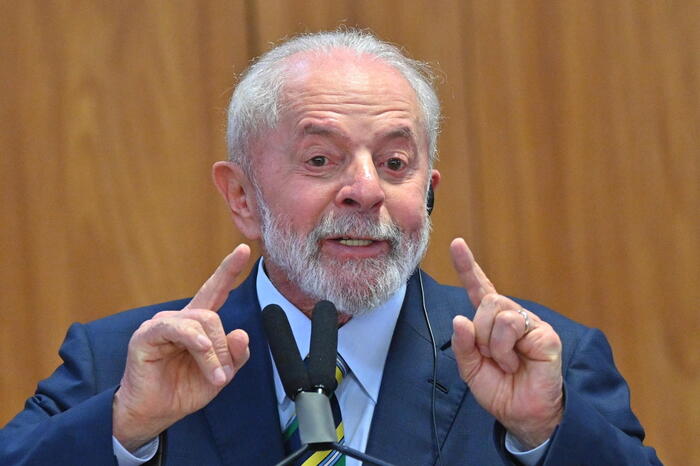In recent years, Brazil has been very accustomed to official communiqués, rejection notes, manifestos and all kinds of writings to express discomfort at the attacks of President Jair Bolsonaro against democratic institutions.
In recent days, however, a text has become "the mother of all letters" and promises to be the most solid and unified attempt to curb the president's coup rhetoric, which continues to question the reliability of the electoral system when there are less than two months to the elections.
Organized by the prestigious Law School of the University of São Paulo (USP), the manifesto regrets that Brazil, at the gates of the official start of the electoral campaign, is going through “a moment of immense danger for democratic normality, risk to the institutions of the Republic and insinuations of contempt for the results of the elections”.
Without directly citing Bolsonaro or any other politician, the text criticizes the "unfounded attacks and lack of evidence that question the rigor of the electoral process and the Democratic State of Law so hard conquered by Brazilian society";
and asks that Brazilians be alert in defense of democracy and respect for the results of the elections.
The letter, launched at the end of July, aroused an unprecedented consensus: at press time it already had more than 940,000 signatures, including those from left and right-wing politicians, businessmen, artists, judges, activists and ordinary citizens.
To illustrate this transversality, the letter was read this Thursday at a ceremony at USP's Law School in which bankers could be seen side by side with trade unionists, academics or activists from the black movement, a rare image of unity in an extremely polarized Brazil.
Even the Federation of Industries of São Paulo (FIESP), a powerful economic
lobby
not suspicious of progressive tendencies, joined the movement with another letter along the same lines.
The date was chosen in allusion to another historic
Letter to Brazilians
, launched in the same faculty in 1977 against the military dictatorship.
The manifesto starred in the heating of the electoral campaign, which formally starts next week.
It was signed by all the presidential candidates, including the favorite in all the polls, Lula da Silva.
Bolsonaro ridiculed the initiative in his latest public statements, stating that no "little letter" is needed to defend democracy and showing signs of nervousness at the fact that bankers and big businessmen, an economic elite that for the most part has always been by his side, also have joined.
"Those who sign that letter are crooks, I'm not going to say any other adjective here because I'm a fairly educated person," he said in a radio interview.
The straw that broke the camel's back and that became the germ of the already famous document was a controversial meeting that Bolsonaro organized in July with some thirty foreign ambassadors to discuss the electoral system.
The president insisted on disseminating suspicions of fraud in electronic ballot boxes, which have been used in Brazil for more than two decades without problems, and said that the system is "totally vulnerable."
It was the clearest staging, this time before the international community, that his strategy involves blaming the voting system and not recognizing the result in the event of eventual defeat.
This week, the Prosecutor's Office accused Bolsonaro of early electoral propaganda for that act and YouTube removed the video of the meeting, within the framework of its policy against disinformation.
Although the movement sparked by the manifestos is significant because of the personalities who have joined, it is not massive and (at least for now) has not led to demonstrations of unity in the streets.
Ordinary Brazilians remain more concerned with the economy and inflation, which gave a truce in July (prices fell 0.68%) thanks to the cut in fuel taxes.
Bolsonaro also has another ace up his sleeve, some social aid that began to be distributed this week.
More than 20 million families from the poorest strata (a vote that normally tends to go to Lula) will receive 600 reais a month (113 euros), a millionaire disbursement for the public coffers that is expected to catapult the popularity of the current president.
The aid only lasts until December and Lula and the opposition in general describe them as electioneering, but they know that they will have an effect on the polls.
The advantage of the leader of the left, who now has a 47% voting intention compared to 29% for Bolsonaro, according to the latest Datafolha poll, is still very wide, but it tends to shorten in the coming weeks.
In the polls, the far-right leader has timidly been adding support, while Lula seems stagnant.
The first acid test of the electoral campaign is expected for September 7, when Brazil celebrates the Bicentennial of its Independence.
Bolsonaro has summoned his followers for a massive act in Rio de Janeiro, in parallel to the traditional military parade.
Last year he already took advantage of the date to mobilize his faithful in marches of a strong anti-democratic nature.
Subscribe here to the EL PAÍS América newsletter and receive all the key information on current affairs in the region.

/cloudfront-eu-central-1.images.arcpublishing.com/prisa/FMKCT5WB4Y4P4ZCZ3J7QFUWSQQ.jpg)
/cloudfront-eu-central-1.images.arcpublishing.com/prisa/ZUBQ7UCFTJCYTB4SMLNMUZIDQ4.jpg)


/cloudfront-eu-central-1.images.arcpublishing.com/prisa/AVTEXOIT25JDRKNTQYQLLZ7NG4.jpg)

/cloudfront-eu-central-1.images.arcpublishing.com/prisa/VMXSEROZRFLUO5THK6ZMQ2QGPA.jpg)




/cloudfront-eu-central-1.images.arcpublishing.com/prisa/KMEYMJKESBAZBE4MRBAM4TGHIQ.jpg)


